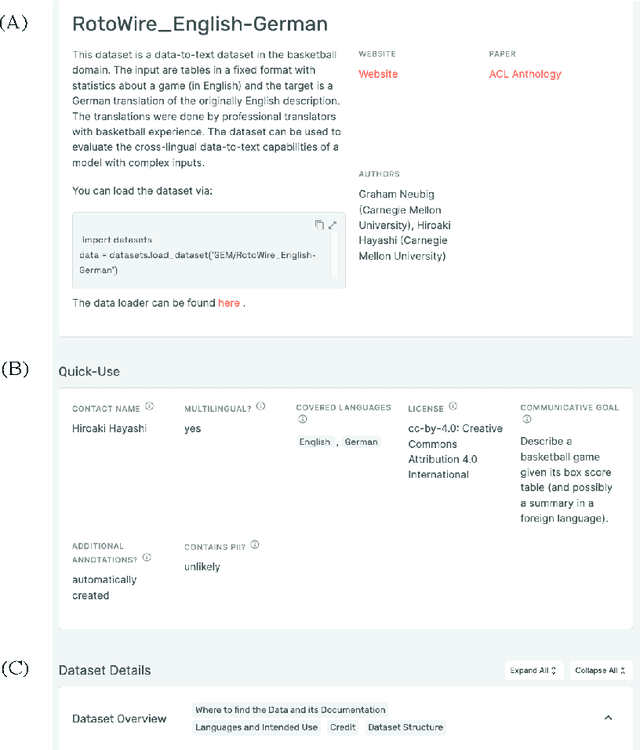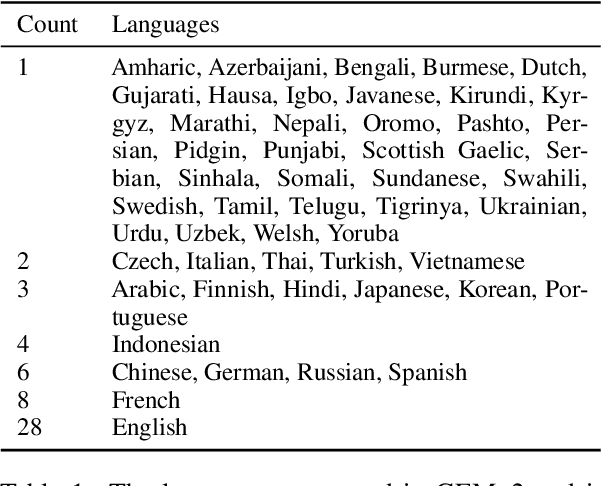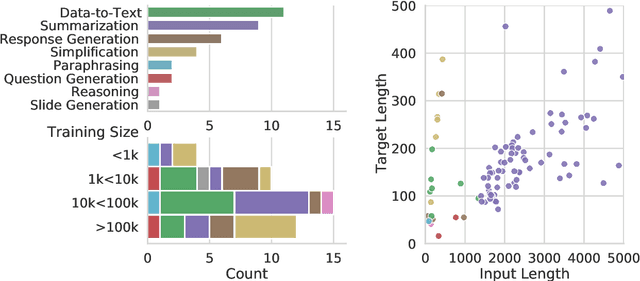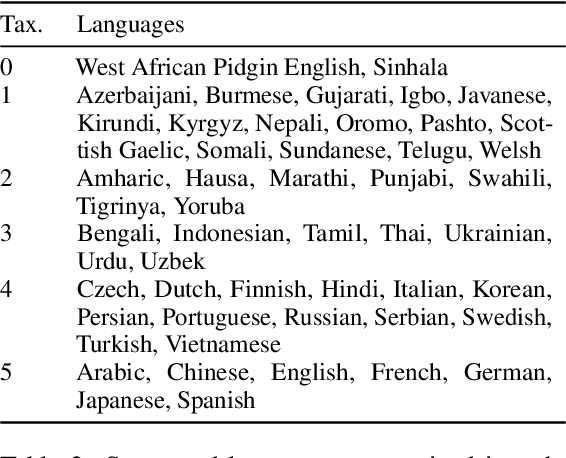Chaobin You
CORECODE: A Common Sense Annotated Dialogue Dataset with Benchmark Tasks for Chinese Large Language Models
Dec 20, 2023



Abstract:As an indispensable ingredient of intelligence, commonsense reasoning is crucial for large language models (LLMs) in real-world scenarios. In this paper, we propose CORECODE, a dataset that contains abundant commonsense knowledge manually annotated on dyadic dialogues, to evaluate the commonsense reasoning and commonsense conflict detection capabilities of Chinese LLMs. We categorize commonsense knowledge in everyday conversations into three dimensions: entity, event, and social interaction. For easy and consistent annotation, we standardize the form of commonsense knowledge annotation in open-domain dialogues as "domain: slot = value". A total of 9 domains and 37 slots are defined to capture diverse commonsense knowledge. With these pre-defined domains and slots, we collect 76,787 commonsense knowledge annotations from 19,700 dialogues through crowdsourcing. To evaluate and enhance the commonsense reasoning capability for LLMs on the curated dataset, we establish a series of dialogue-level reasoning and detection tasks, including commonsense knowledge filling, commonsense knowledge generation, commonsense conflict phrase detection, domain identification, slot identification, and event causal inference. A wide variety of existing open-source Chinese LLMs are evaluated with these tasks on our dataset. Experimental results demonstrate that these models are not competent to predict CORECODE's plentiful reasoning content, and even ChatGPT could only achieve 0.275 and 0.084 accuracy on the domain identification and slot identification tasks under the zero-shot setting. We release the data and codes of CORECODE at https://github.com/danshi777/CORECODE to promote commonsense reasoning evaluation and study of LLMs in the context of daily conversations.
X-RiSAWOZ: High-Quality End-to-End Multilingual Dialogue Datasets and Few-shot Agents
Jun 30, 2023



Abstract:Task-oriented dialogue research has mainly focused on a few popular languages like English and Chinese, due to the high dataset creation cost for a new language. To reduce the cost, we apply manual editing to automatically translated data. We create a new multilingual benchmark, X-RiSAWOZ, by translating the Chinese RiSAWOZ to 4 languages: English, French, Hindi, Korean; and a code-mixed English-Hindi language. X-RiSAWOZ has more than 18,000 human-verified dialogue utterances for each language, and unlike most multilingual prior work, is an end-to-end dataset for building fully-functioning agents. The many difficulties we encountered in creating X-RiSAWOZ led us to develop a toolset to accelerate the post-editing of a new language dataset after translation. This toolset improves machine translation with a hybrid entity alignment technique that combines neural with dictionary-based methods, along with many automated and semi-automated validation checks. We establish strong baselines for X-RiSAWOZ by training dialogue agents in the zero- and few-shot settings where limited gold data is available in the target language. Our results suggest that our translation and post-editing methodology and toolset can be used to create new high-quality multilingual dialogue agents cost-effectively. Our dataset, code, and toolkit are released open-source.
GEMv2: Multilingual NLG Benchmarking in a Single Line of Code
Jun 24, 2022



Abstract:Evaluation in machine learning is usually informed by past choices, for example which datasets or metrics to use. This standardization enables the comparison on equal footing using leaderboards, but the evaluation choices become sub-optimal as better alternatives arise. This problem is especially pertinent in natural language generation which requires ever-improving suites of datasets, metrics, and human evaluation to make definitive claims. To make following best model evaluation practices easier, we introduce GEMv2. The new version of the Generation, Evaluation, and Metrics Benchmark introduces a modular infrastructure for dataset, model, and metric developers to benefit from each others work. GEMv2 supports 40 documented datasets in 51 languages. Models for all datasets can be evaluated online and our interactive data card creation and rendering tools make it easier to add new datasets to the living benchmark.
 Add to Chrome
Add to Chrome Add to Firefox
Add to Firefox Add to Edge
Add to Edge